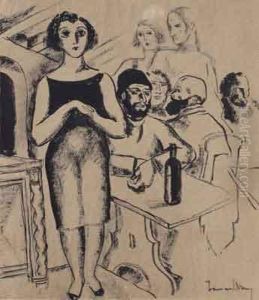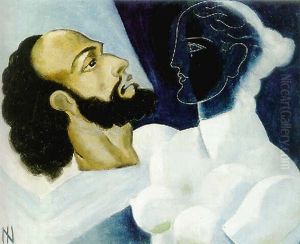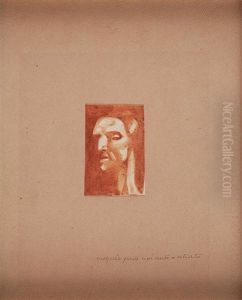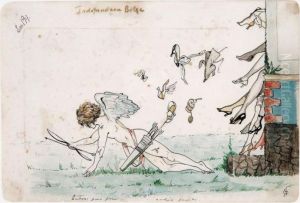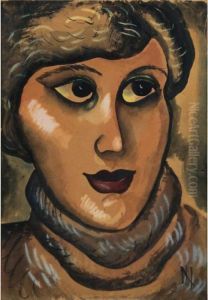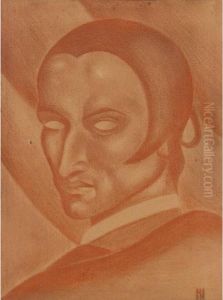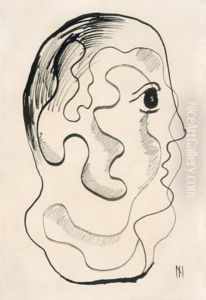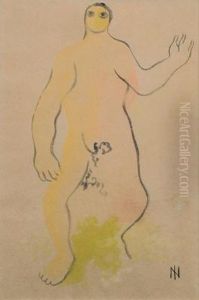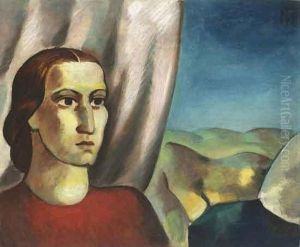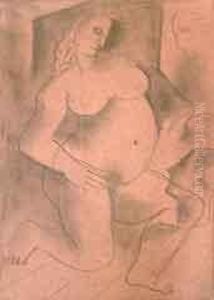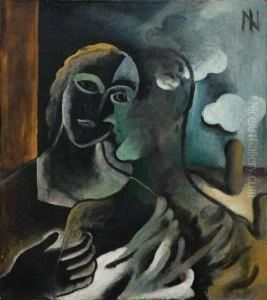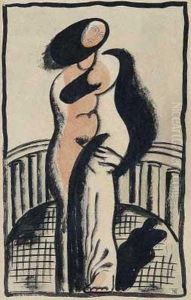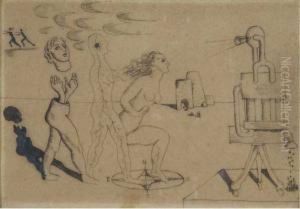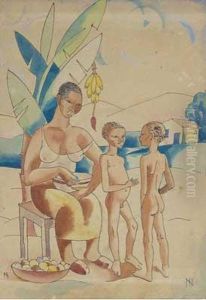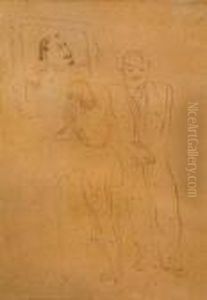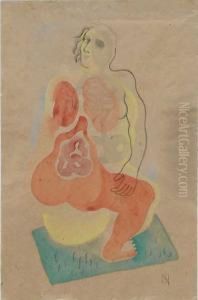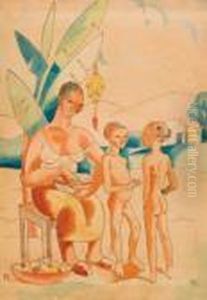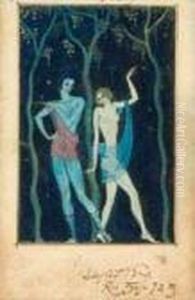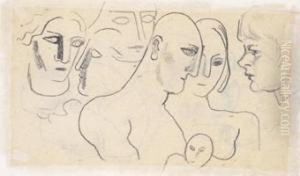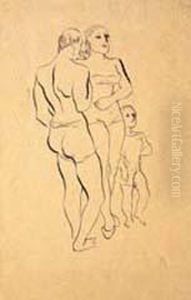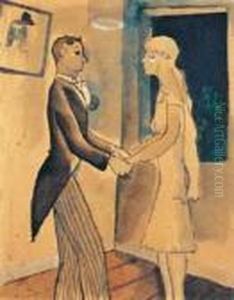Ismael Nery Paintings
Ismael Nery was a Brazilian artist known for his unique style that blended elements of modernism, expressionism, and surrealism. Born on October 9, 1900, in Belém, in the state of Pará, Brazil, Nery was a significant figure in the Brazilian art scene during the early 20th century. He was deeply interested in philosophy and literature, which influenced his artistic work.
Nery studied at the National School of Fine Arts in Rio de Janeiro. Despite being influenced by European modernist movements, he developed a personal style that was also deeply rooted in his own philosophical and existential concerns, which he termed 'Essentialism.' This concept sought to express the universal aspects of the human experience, going beyond the superficial differences that separate individuals.
Throughout his career, Nery traveled to Europe, where he encountered works by artists such as Cézanne, Picasso, and the Surrealists. These experiences further shaped his artistic vision. However, he remained relatively isolated from other Brazilian artists of his time who were more focused on regional and nationalistic themes.
Ismael Nery's work includes a range of paintings, drawings, and sketches that often depict ethereal figures in dream-like scenarios. His art is characterized by elongated forms, a limited color palette, and a sense of mysticism. Nery's work was not widely recognized during his lifetime, and it was only after his death that his contributions to Brazilian art were truly appreciated.
Nery’s life was cut short by tuberculosis; he died on April 6, 1934, at the age of 33. Despite his brief career, he left behind a body of work that continues to be studied and admired for its originality and depth. Today, Ismael Nery is considered one of the pioneers of modern art in Brazil, and his work has been the subject of several posthumous exhibitions.
